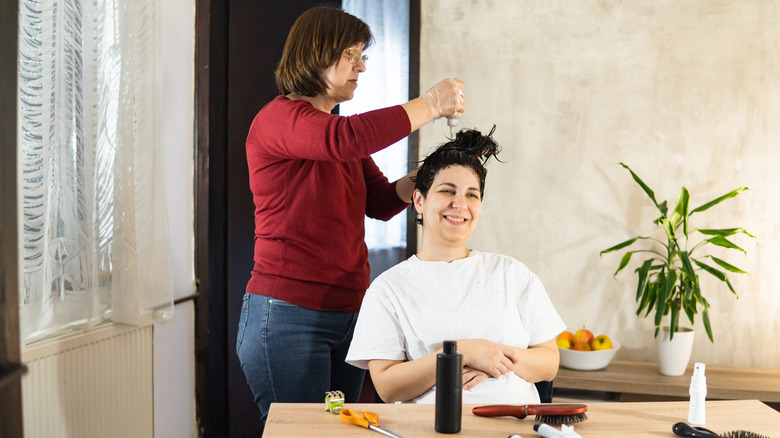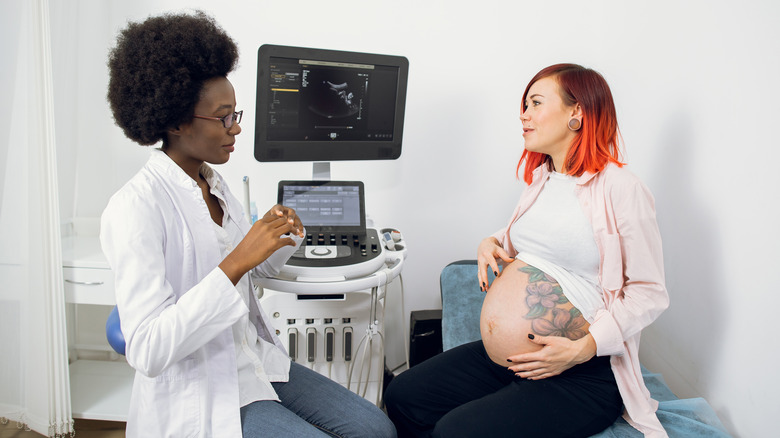Is Dyeing Your Hair Really A Big Deal While Pregnant? An Obstetrician Weighs In
Because hair dye contains a variety of chemicals, you may be wondering if exposure to these chemicals is safe during pregnancy. "Generally speaking, it is safe to dye your hair while pregnant since most of the chemicals used in hair dye are not highly toxic," says Dr. Javier Saldaña, a gynecologist and obstetrician at VIDA Wellness and Beauty with over 12 years of experience, in an exclusive interview with Health Digest.
However, he notes that there may be a few notable exceptions, such as if you use an excessive amount of product. "Unless you use an extreme amount, the amounts used in hair dye are usually well below the levels that could have an impact on your baby," he states. The greatest risk he says, however, is dyeing one's hair with skin damage present. "Additionally, if you have any open wounds or cuts on your scalp, there is a greater risk of the chemicals in the dye entering your bloodstream, which could be potentially harmful to you and your baby."
Timing can also be a factor. Dr. Saldaña explains that "It is also best not to dye your hair during the first trimester, since this is when your baby is still developing its most important organs, like the brain and heart." At this point in fetal development, "any exposure to potentially toxic chemicals could have a negative effect," he says.
Potential risks to the mother, and safety tips for hair dyeing during pregnancy
In addition to the risks posed to the developing fetus, hair dyeing during pregnancy may also have unanticipated effects on the expectant mother. Dr. Saldaña goes on to tell us exclusively that, "Due to the increased sensitivity of your skin during pregnancy, you may have an adverse reaction to the chemicals in hair dye. This could manifest as a rash or swelling around the affected area."
However, Dr. Saldaña has some tips to help mitigate any risks for the pregnant person or baby. "If you really need to dye your hair while pregnant, a good way to reduce the risk of chemicals is to use natural alternatives such as henna or plant dyes," Dr. Saldaña suggests. "These are much less likely to contain harsh chemicals, and so they pose a lower risk to your baby's health," he says.
However, if regular hair dye is your only option, Dr. Saldaña encourages patients to be extra careful with the product, particularly when applying it around any wounds or cuts. "You should also make sure to wear gloves and a protective face mask when dying your hair, so as to further reduce your exposure to the chemicals," he adds. "Finally, the best way to reduce any potential risks is to consult with your doctor and get medical advice," Dr. Saldaña emphasizes in closing. "They will be able to help you make an informed decision about whether or not dying your hair while pregnant is safe for you and your baby."


